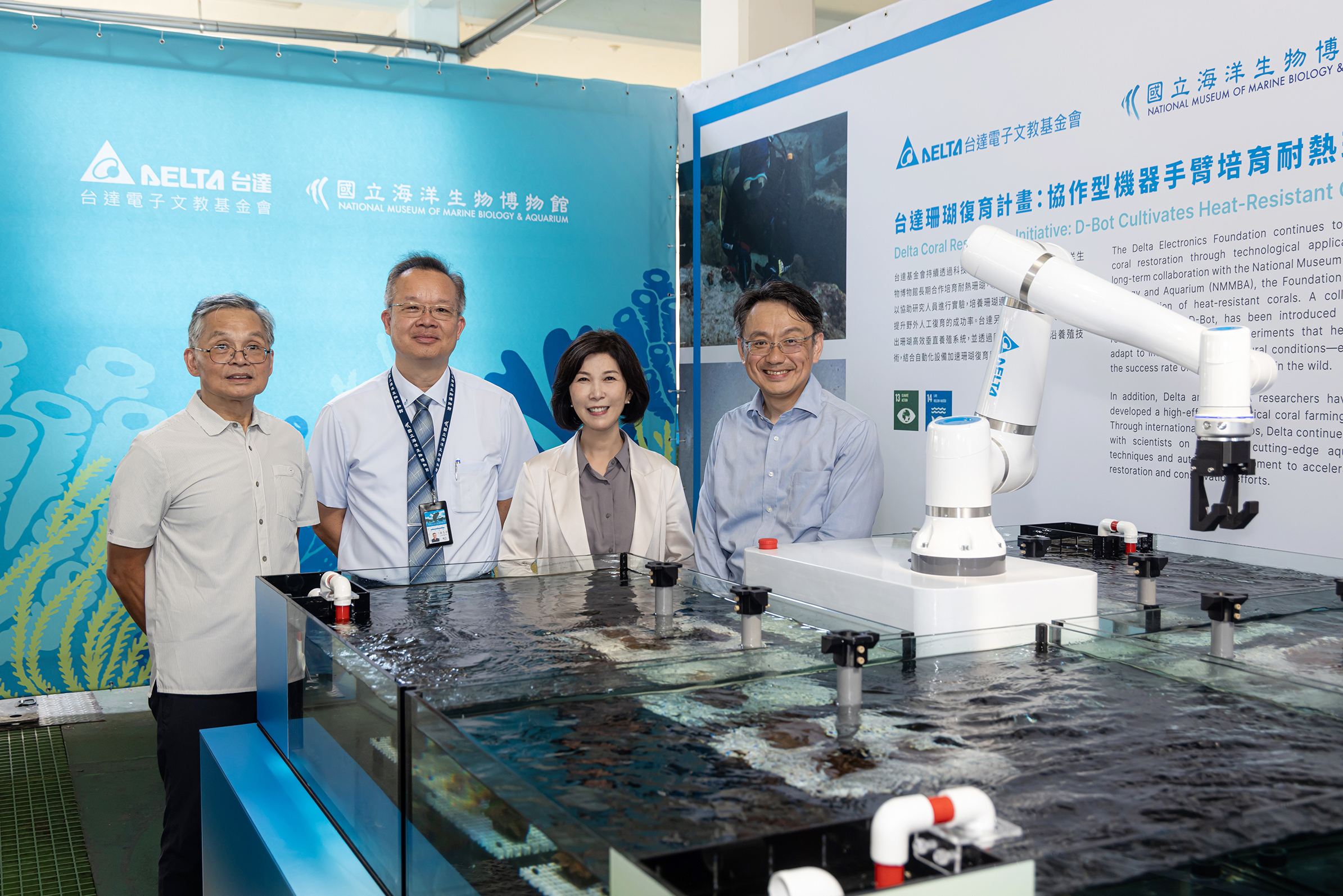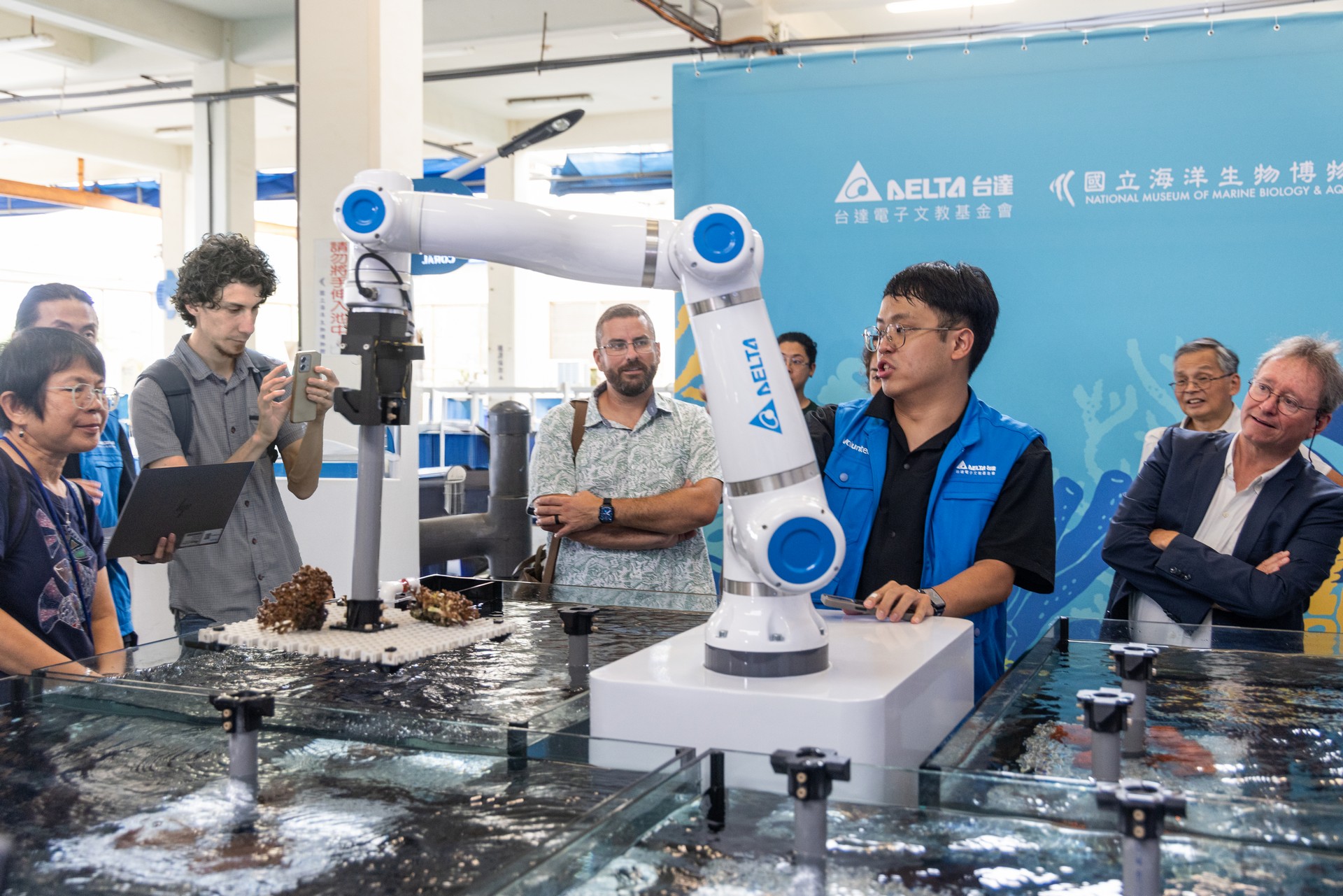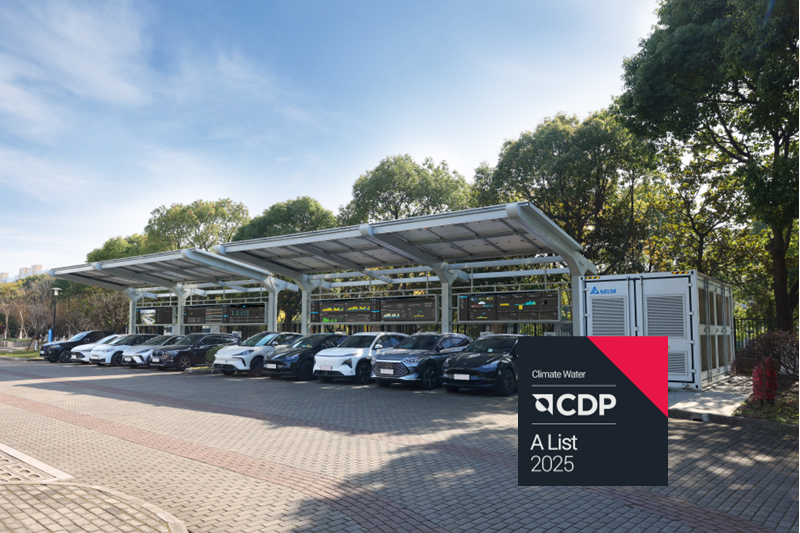
Shan-Shan Guo, Vice Chairman of Delta Electronics Foundation, Zhi-Hong Wen, Director of the National Museum of Marine Biology and Aquarium, Chang-Feng Dai, Chief Consultant of Delta’s coral restoration project, Sen-Lin Tang, President of Taiwanese Coral Reef Society (from left to right) delivered speeches at the first Delta international coral restoration symposium.

Chang-Feng Dai, Chief Consultant of Delta’s coral restoration project, Zhi-Hong Wen, Director of the National Museum of Marine Biology and Aquarium, Shan-Shan Guo, Vice Chairman of Delta Electronics Foundation, Wim Chang, CEO of Delta Electronics Foundation (from left to right) discussed how Delta's collaborative robotic arm can assist in the cultivation of heat-resistant coral.

International conservation scholars are paying attention to how Delta is using technology to help cultivate heat-resistant coral, breaking through human resource limitations.







